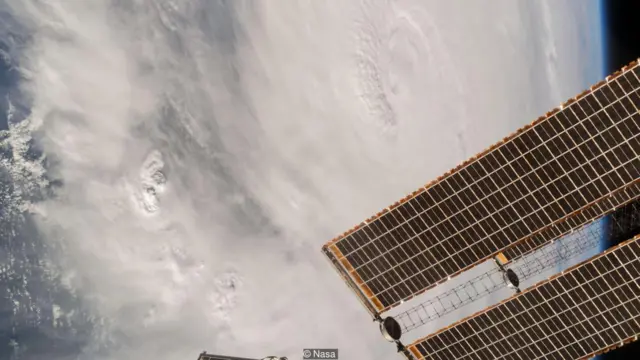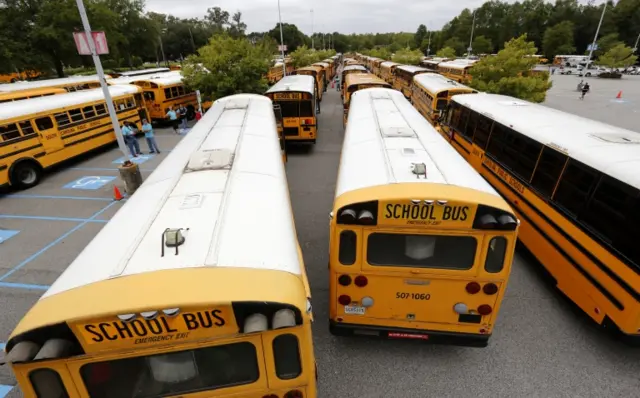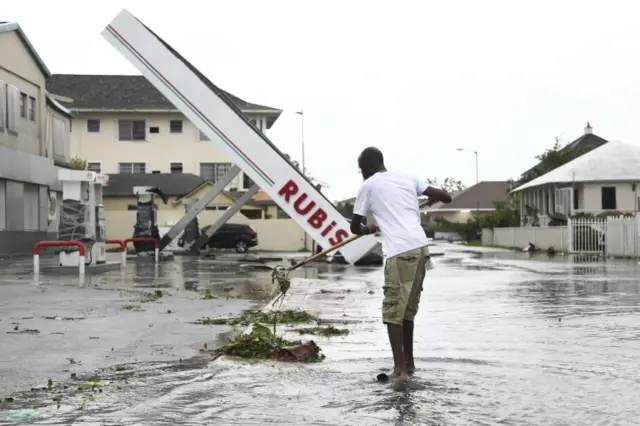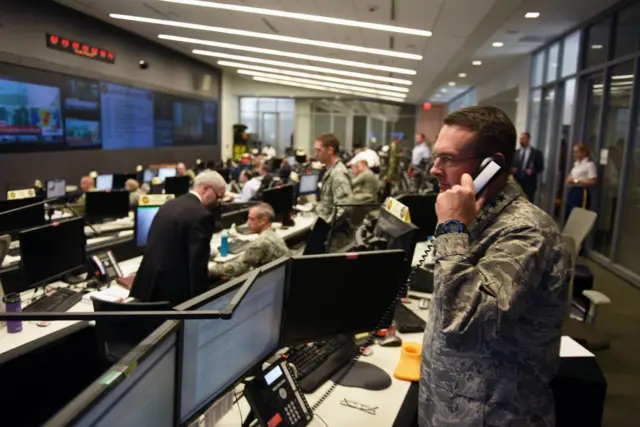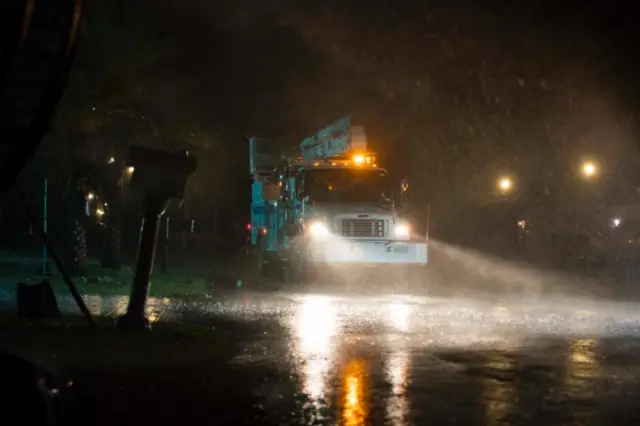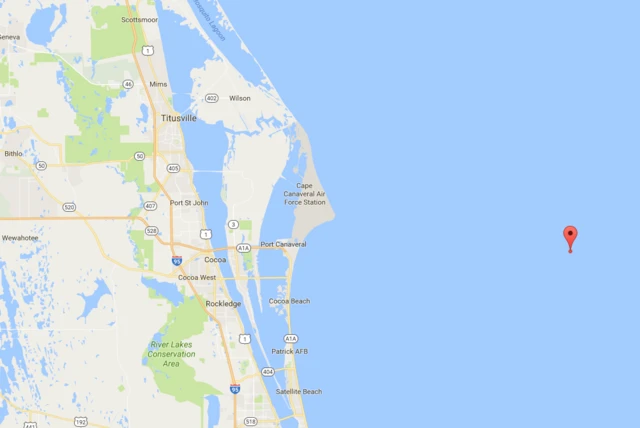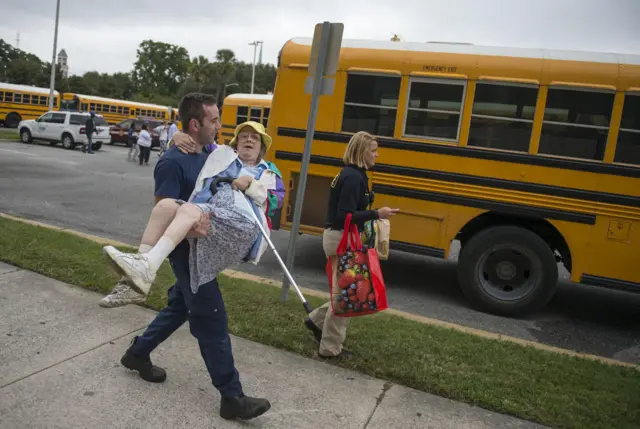Regret for some who didn't evacuatepublished at 13:38 BST 7 October 2016
Authorities warned about two million people to evacuate inland as Hurricane Matthew approached Florida, but some people ignored that warning and chose to stay in their homes.
As the storm approached Cape Canaveral, some found themselves regretting that decision.
Brevard County Emergency Operations spokesman David Waters told the Associated Press he had spoken to families who said things like: "We're scared. We wish we hadn't stayed."
One family called in to say that the roof "just flew off their home on Merritt Island," Mr Waters said.
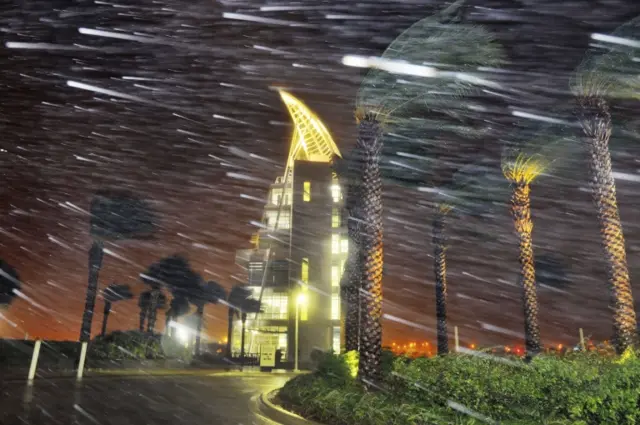 Image source, AP
Image source, APWinds batter Cape Canaveral, Florida
